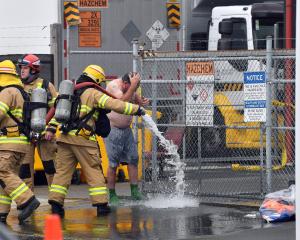
Instead, an understanding relationship with a clinician would give a better indication of someone's suicide risk, although researchers acknowledge that might be difficult in the example of an emergency department assessment.
University of Otago researchers Christopher Gale and Paul Glue, of the department of psychological medicine, examined risk audits of 376 patients at Waikato Hospital, and found many aspects of the ministry's recommended assessments were incomplete.
"Only 18% of these patients had their attitude to current and personal safety explored, 24% had their access to further means of self-harm documented and 27% asked the family about their ability to keep the patient safe, while 36% noted family and caregiver concerns," the researchers said in an article published today in the New Zealand Medical Journal.
While the audit did not consider other factors, did not follow the patients over time and did not have a control group, the researchers believed it raised important issues which required further study.
"The study highlights the potential for clinical documentation not complying with guidelines, no matter how written or practical," the article said.
"However, documentation is but a precis ... ongoing contact is likely to make more difference to suicide death rates than a perfectly completed risk assessment tool."
The most recent reliable suicide statistics date from 2012-13.
They show 550 deaths from suicide in 2012, and in 2013 7267 hospitalisations for deliberate self-harm.
Both were more common in younger than older people, and in Maori rather than non Maori.
Suicide is more common in men, and deliberate self-harm in women.
A strong doctor-patient relationship with a possibly suicidal person ought to drive their treatment programme, but that would require adequate time, Profs Gale and Glue said.
Practically, that was more likely to be achieved in follow-up treatment, but available evidence did not support reliance on current risk assessment tools to predict suicidal behaviour.
"Development of a psychiatric formulation and building a therapeutic relationship may offer greater potential to recognise future suicidality, but involves greater duration and and depth of contact with patients, and greater complexity than any assessment tool can provide," the article said.
"In the future, developing robust interventions for patients presenting with suicidal ideation and deliberate self harm might be a more appropriate focus for research than screening for suicide risk without such an intervention being readily available."
Where to get help:
Healthline: 0800 611 116
Lifeline Aotearoa: 0800 543 354
Suicide Crisis Helpline: 0508 828 865 (0508 TAUTOKO)
Samaritans: 0800 726 666
Alcohol Drug Helpline: 0800 787 797
General mental health inquiries: 0800 44 33 66
The Depression Helpline: 0800 111 757












